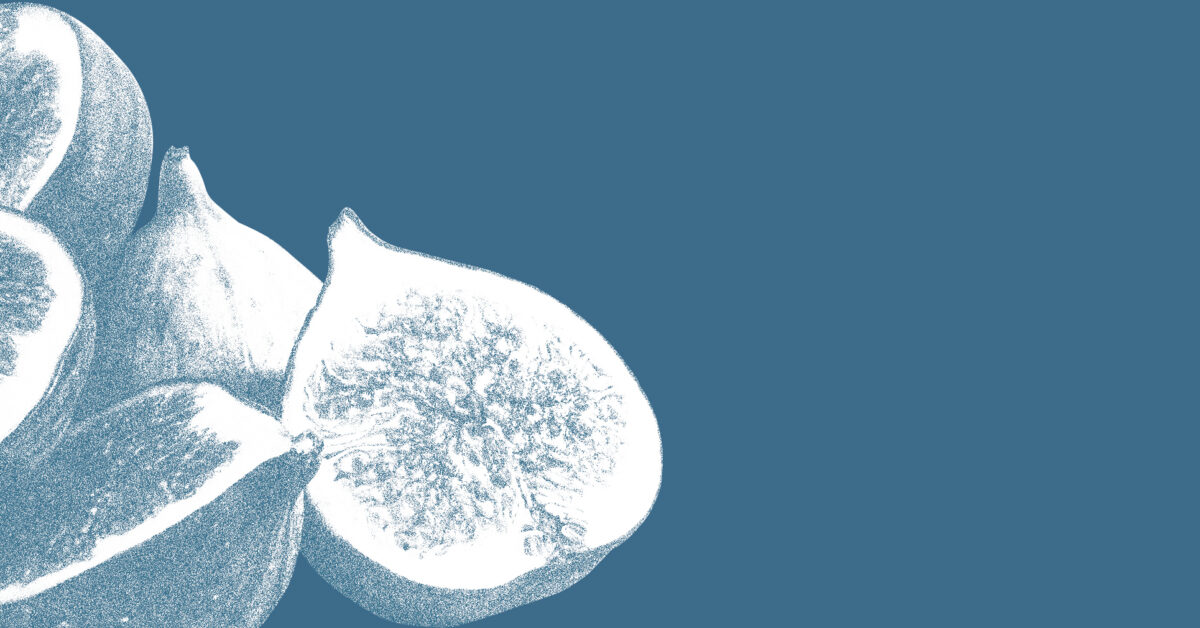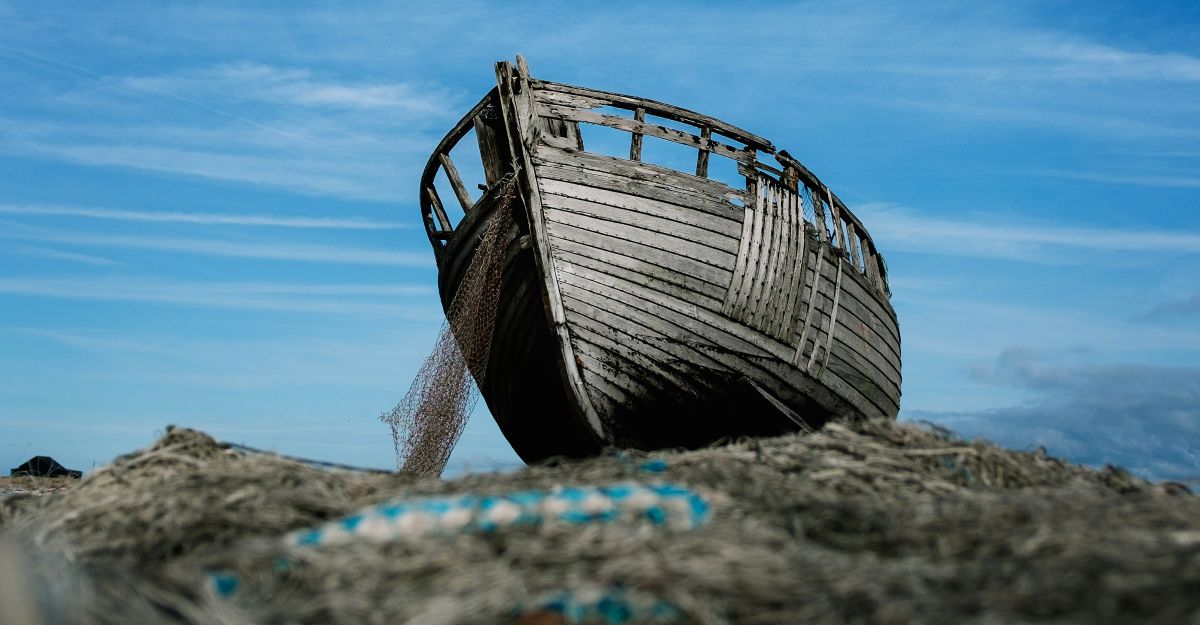He pushes his chair back and stretches his limbs, turning himself into a multiplication sign before taking his glasses off and rubbing his eyes. He knows how they must look: red, irritated, thirsty for a few artificial tears. Has he just snapped at a student? In an online class which was recorded? God damn it! He slams his laptop shut, opens his desk drawer, picks up his eyedrops, and walks to the window. His father still squats where he’s been for the last hour, under the shade of the fig tree, a garden trowel in his hand.
He tilts his head back. One drop for the left eye, two for the right. His father becomes one with the garden, like a dot on a canvas of smeared colours, as his eyelids flutter, celebrating the pseudo-water. What does he do in that garden all the time? How much is there to do anyway?
He sits at the edge of the window, leans his head against it, closes his eyes, and lets them ease under the warmth of the sunlight. Work-from-home has long lost its appeal. Now he misses his old daily routines. Rushing to make breakfast, getting ready, driving to and from work through the impossible traffic … All those futile tasks that saved him from himself and from all the news he now reads every morning while still in bed. Moving back into his parents’ house has also freed a lot of time. His mother—now stuck at home—does not leave him any chores. She cooks, cleans, washes the dishes, even his clothes. If he objects or offers a hand, ‘What else do I have to do in this house from morning to night?’ is her answer. It is not the response but her tone, as if pleading (for what he cannot be sure), that shuts him up.
Moving back in was his mother’s idea. ‘If we’ll have to stay in all the time, and you’ll have to work from home, maybe you could stay with us?’ He had imagined his mother in a large house she could not leave, living with an older husband with whom she shared no common interests, and he had decided not to extend the lease of his apartment.
Acid defies gravity, flows into his food pipe and leaves a burning pain in his chest. He should have something, anything, before his next class. On his way to the kitchen, he throws the empty bottle of eyedrops in the bin. ‘Are you sure you want to move back in with your parents?’ a friend had asked. His presence could comfort his parents and the whole thing would blow over in a few months anyway. Plus he’d use the extra time to translate some of the books he had intended to do for years. At his parents’, he has ended up doing less than he usually would.
‘Hamid, dear, did you talk to your dad?’
He hears his mother’s voice, closes the fridge door, and turns. ‘Yes, Mum, I did.’ He pours water into a glass and places the jar on the counter.
‘And?’
‘He said he’ll think about it.’
‘That’s all? He always says the same thing and then goes on with his life as if nothing’s the matter!’
‘I’ll talk to him again and—’
‘Which bit of this house gets too cold in winter doesn’t he get?’ She raises her voice. He wants to interfere, to say he knows all her concerns by heart, but he glances at her short fingers, their joints swollen as if still carrying the remnants of the last cold winter, and lets her go on. ‘Plus, look around us. We’re one of the few one-storey buildings in the whole neighbourhood. There’s one construction on the right, and another right behind us. If I could put up with the constant clatter, which drives me mad anyway, I still don’t feel safe here! It’s too easy to get into this damn house.’
‘You’re right, Mum. I know what you mean and I’m—’
‘No, you don’t! No one does! You have your headset on all the time, and your dad is partially deaf. If we sell this house, we can get a big, comfortable apartment and a smaller one to rent and have some more cash rather than living on our measly pensions.’
‘I’ll talk to him again, I promise.’ He is late for his next class. ‘By the way, why’s he wearing two masks in the garden?’
He chops an apple, sits at the table and puts a small piece in his mouth. Its sweet taste is embittered by guilt. He has not spoken to his father except for that one time, an early morning, about two months after he had moved in.
His father had been sitting up against the bedhead, his teeth still in a glass on a bedside table. He had tried to convince his father to sell the house. He’d implied his father was being selfish, ignorant of the most basic rights of his wife of fifty years, who was suffering from a chronic disease. He had highlighted that an apartment was not a ‘cage’—at least not the two-hundred-square-metre one which his parents would live in. His father had listened with his eyes closed. A sugar cube at the corner of his mouth was melting away with every squeeze of his toothless gums. ‘Couldn’t we install more heaters?’ his father had suggested. No! The house had too many windows, too many cracks, was too old to hold the heat. They could not afford any renovation that made any real difference and a quick fix would be a waste of money.
Two days after their talk, his father had left the house for a stroll in a nearby park. Three hours later his mother had said ‘It’s not like your dad to stay out for so long.’
He had found his father sitting on a curb, under the shade of a tree, his masks hanging from his chin, his face pale. His eyes were the eyes of a stranger.
‘Let’s go home, Dad,’ he had said. A familiar glint returned to his father’s eyes; he had got to his feet and followed him in silence. This had not been the first time his father had lost his way home. But last time it had happened in a strange neighbourhood, after leaving a monthly gathering with his friends late at night. If his father could get lost on the way back to the house he had lived in for forty-five years, what would happen if he moved to a new place?
So now renovating the house seems like a reasonable compromise. He has some savings, enough to fix a few things and make winters bearable—back to the quick fix he had reasoned against. But he is not going to bring it up now. His mother does not like the idea; she has made it clear that any money spent on this house is a waste. He suspects there must be more to his mother’s insistence on selling the house. Does she see it as her last chance to have her voice heard on something major?
He eats the last piece of apple, takes a glass of water, and walks to the yard.
’Dad! You don’t need to wear a mask in the garden.’
‘What?’
He takes a step closer to him and says more loudly, ‘I said “You don’t need to wear a mask here.”’
‘I don’t?’
‘No, you don’t.’
‘Okay.’ He holds a branch of the fig tree in one hand and twists a fig off with the other. ‘Some of these figs are as big as an orange! Come, you have to try one.’
‘You gave me one yesterday.’
His father ambles towards the tap, squats, and rubs the fig tenderly under the slim flow of water. ‘Their skins are so fragile.’ He turns off the tap and holds on to it, using it to push himself up to standing. ‘For you, try.’
He grabs the fig and passes his father the glass of water. ‘Have some, it’s bloody hot.’
His father takes his masks off, drinks the water in one go, and rubs his beard dry with the back of his hand. ‘How is it?’
‘It’s beautiful, Dad, thank you.’
‘It is, isn’t it?’ He returns to the garden.
He checks his watch. Damn it! By now some of his students might have gone off-line. He rushes back to his room, hesitates at his desk, and walks to the window again. His father stops digging, stands up, rubs his hands clean on his pyjama top, takes a sugar cube out of his pyjama pocket, puts it in his mouth, squats down, picks his garden trowel up, and gets back to digging.
*
He wakes from a broken sleep, from fragmented dreams. Has he heard the screech of furniture on the floor? He sits at the edge of his bed and listens. Weights, workouts, tired, a good night’s sleep go through his mind as he waits for the next scrape. Nothing. Might as well check the living room.
‘What’s up, Dad?’
His father is walking around the living room. He stops, places his right hand on his chest, as if trying to burp. ‘I feel so bloated. I don’t know if it’s my dinner, or something’s wrong with my stomach.’
‘Come here, Dad! There’s nothing wrong with you. You did all sorts of tests two years ago, remember? Your doctor said it’s anxiety. I bet you’ve forgotten to take your pills.’
His father stands behind him as he goes through the bedside-table drawer. ‘Here! There’s one pack untouched. Half of it should’ve been gone by now. Why didn’t you take it?’
‘I’m not sure. I must’ve felt better—’
‘You’re not a doctor!’ He knows he should feel embarrassed by his impatience. Why doesn’t he? ‘Now take one and go to bed. You’ll feel better. I promise.’
*
‘Morning,’ he says.
‘Good morning, dear.’ His mother is using tissues and sanitiser to wipe the packages of groceries that have just been delivered. ‘I didn’t know you had classes on Fridays too.’
‘Private session. For a student who needs to sit for his IELTS soon.’
‘Yesterday had the highest number of deaths so far. Four-hundred-twenty-two!’ His mother shakes her head.
‘Yeah, four-hundred-twenty-nine, I read this morning. The real number is much higher though, I’m sure.’
‘Of course! When have they told us the truth? I just chatted to your auntie on the phone. Come sit at the table, I’ll bring you your tea. Anyway, she said something interesting. Dates or dark chocolates?’
‘Dates please.’
His mother places a cup of tea and a bowl of dates in front of him, returns to the other side of the table, and continues cleaning every packet meticulously.
‘The other day, you remember we were wondering how come, unlike other neighbourhoods, we never have any water or electricity cuts?’
‘Yeah?’
‘Your auntie said that apparently the Imam of Friday Prayer lives in this neighbourhood.’
‘I won’t be surprised if that’s why.’ He blows at his tea and takes a sip. ‘That’s a lot of sugar cubes, Mum!’
‘Last time I ordered two kilograms and they were gone in five weeks. Every two days I have to refill this bowl again.’
‘That’s an awful amount of sugar. It’s really bad for him.’
‘I tell your dad all the time, but he doesn’t listen. Your eyes are really red, dear.’
‘I’ve run out of eyedrops. I don’t know why they don’t sell more than two at once.’
‘When did you finish?’
‘Two days ago.’
‘Why didn’t you buy some then?’
The tedious ritual of going to a pharmacy. Wearing two masks, hovering outside the pharmacy, looking for the right moment with not many customers inside, which usually means a long wait, putting his gloves on while rushing inside, asking for the drops, trying his luck to see if they will sell him more than two, paying at the counter, telling the cashier to keep the change, and dashing out. And the worst has not come yet: the aching that borders on compulsion and manifests as a question—has he, despite all his precautions, exposed his parents? That is the reason, which he keeps to himself. ‘I’ve been too busy. I’ll buy them today.’ Might as well get it over with.
He passes through the yard; his father is watering the garden. He hesitates before he says, ‘Dad, take it easy with the water.’
‘What?’
‘Water, Dad, don’t use it too freely.’ To be fair, his father has been careful with water throughout his life—as a principle and long before the water crisis. But in such a dry year it seems wasteful to use a hose. ‘I can water it with a bucket when I’m back.’
‘It’s okay, we can afford a bit of water.’ His father smiles.
‘People get shot over water, Dad.’
‘Get shot? Over water?’
‘Five died in water protests last week.’
‘Where? Here?’
‘In Khuzestan.’
‘Khuzestan in the south?’
‘Yes, there’s no other.’
‘I haven’t heard anything on the news.’
‘They don’t report news like that on the radio, Dad.’
‘Where are you going?’
‘To the pharmacy.’ He puts the first mask on.
*
He is lying on his bed, eyes closed, headphones on, listening to music. Words floating over the frenzy of a tanbour. I used to read the myths of lovers, day and night; now in your love, I am become myth myself … A silky fabric, floating over fire. A scream turns fire into char, silk into dust. He rushes into the yard.
His mother is on the ground, as if crawling on her side, eyes wide open, face bleached—the screaming still frantic. From the corner of his eye he sees a shadow jumping over the wall. ‘MUM! Mum! It’s alright!’ He holds her tight. ‘I’m here. It’s alright. I’m here.’ The scream fades, turns into quiet weeping. Her stiff trembling body settles in his embrace. He waits for a minute or two before saying ‘Let’s go in. Let me get you some water.’ It is only then that he notices her cracked tablet on the ground, a black headset still attached to it.
He stirs a spoon of honey into a glass of lukewarm water and brings it to the table. His mother takes a sip. ‘What happened, Mum?’
‘I was walking around the yard, listening to an audio book. I stopped to start a new chapter, when somebody put his hand over my mouth and asked me to stay quiet.’ She takes another sip.
For a few seconds, he does not know how to respond, imagining a strange hand covering his mother’s pale lips. ‘Thank God you managed to shout.’
‘His grip was weak and shaky. He was young, very young.’
‘You saw his face?’
She nods.
‘I think I should call the police.’
‘What can they do? They’re useless anyway!’
It’s good to have a police car patrolling around for a while. He grabs his mother’s hand and squeezes it tenderly.
‘Do you want some more water?’
She shakes her head.
His father enters the kitchen. His hair is ruffled; he has woken from his afternoon nap. ‘Did you hear a scream too? Or maybe I was dreaming.’
‘Somebody broke into the house,’ his mother says, not hiding the hostility in her voice.
‘Our house? I didn’t hear anything.’
‘Because you’re deaf.’
‘They came into the house?’
‘Not inside, Dad, into the yard. And it was one person.’
His father scratches his head, squinting his eyes as if contemplating. ‘Maybe he’d come to pick some figs then.’
His mother covers her face and breaks into a sob.
His father approaches the table, places his hand on her shoulder, like an awkward teenager trying to console a girl for the first time. ‘It’s okay. Don’t cry.’
His mother sobs again—this time louder.
*
‘We just checked next-door’s construction site,’ the police officer says. ‘Couldn’t find anyone except for the caretaker.’
‘I know the caretaker; it wasn’t him.’
‘Thought not. Too old to fit your description.’
‘I’ve lived in this neighbourhood for forty years now, Officer,’ his father interjects. ‘It’s really safe.’
‘Would you just … let them do their work.’ His mother adjusts her mask.
‘What was he wearing?’
‘I don’t know. It happened so quickly, everything’s a blur.’
‘You didn’t see his outfit either?’ the officer asks him.
‘I just saw a silhouette from the corner of my eye.’
‘Anyway, he must’ve observed the house for a while and thought that you were alone,’ the officer continues, pushing his belt up under his belly. ‘And he must’ve been an amateur coming to a house with no clear plan, in the broad daylight.’ He smiles.
The officer lands on his knees, his nose bleeding, his smug smile long gone: the image flashes through his mind before he asks, ‘Is there anything you can do?’
‘Nothing at this stage. But if anyone similar to what your mother described is arrested at some point, which will happen sooner than later based on what I just heard’—his smile disappears confronted by three stern faces—‘then we’ll let you know.’
‘Okay.’
‘Meanwhile, you can install some temporary fences over the wall, until the construction is done.’ The officer closes the living-room door behind him.
‘What did I tell you? Useless!’ his mother sighs.
*
His father is sitting on his rustic metal chair facing the garden, rhythmic dimples forming on his cheeks. ‘Usually figs get this big in the middle of the summer. But they’ve ripened early this year because of the heat.’
He imagines tiny units of glucose swimming in his father’s blood. ‘Yeah, it’s been scorching hot.’ He tilts his head back. One drop for the left eye, two drops for the right.
‘It’s a young tree on rich soil. It still has thousands of figs in it,’ his father says.
How many more harvests though?



